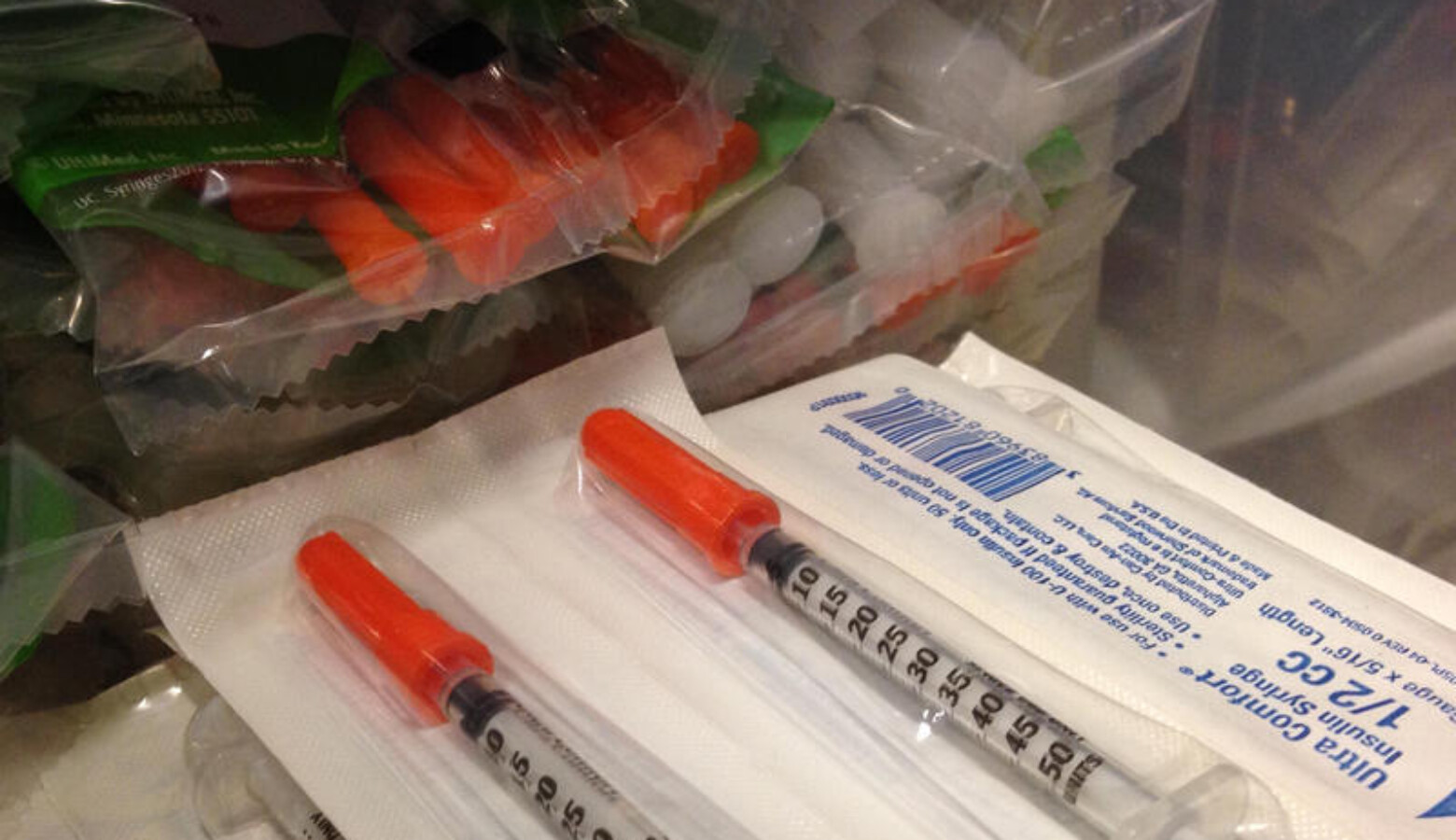Credited With Slowing The HIV Outbreak, Scott County’s Needle Exchange Now In Jeopardy

In 2015, Scott County was the epicenter of a severe HIV outbreak spurred by intravenous drug use.
At its worst, the county saw hundreds of cases of HIV. Last year the county had one. Local health officials credit the county’s syringe service program (SSP).
READ MORE: Southeastern Indiana HIV Outbreak Was Years In The Making
But after years of success, the county commissioners might end the SSP. They held an open forum Wednesday night to discuss the program’s future.
Both State Health Commissioner Dr. Kris Box and former U.S. Surgeon General Dr. Jerome Adams, who was health commissioner during the 2015 epidemic, were in attendance. They praised the county’s SSP, saying Scott’s is a national example.
“I’ve seen syringe service programs all over the nation; I’ve been to Canada and seen how they do it over there,” Adams said. “And the way you’re doing it here is the way it’s supposed to be done.”
Syringe service programs, also called needle exchanges, provide intravenous drug users with clean needles and a place to dispose of used ones. They can also act as an access point to healthcare or recovery services for those who are unlikely to seek them out.
Opponents of the programs say they enable drug users and lead to used needles on the street.
Jerry Goodin, Scott County Sheriff, opened the forum saying that as a law enforcement officer, he thought the same thing when he first heard about SSPs. But having seen Scott’s in action, he thinks they should stay.
According to Goodin, they save the county money, keep officers safe from accidental jabs and have even led to fewer needles on the street – before the exchange, officers were picking up 100 syringes a day. They’ve collected two off the street since January.
“For the safety of our prisoners, for the safety of our children, for the safety of our officers, for the safety of Scott County, I have to say that I am a big supporter of the needle exchange,” Goodin said.
Box said the CDC and Kentucky Department of Health had reached out to ask if they could participate Wednesday. She declined because she respected it as a local decision, just as it was when the county created the state’s first SSP.
“You have set the bar not just for the state of Indiana, but for the entire nation. I just don’t want to see you abandon that.”
But she also said that if the commissioners moved to end the program, there was “no question in [her] mind” cases of HIV and hepatitis C would increase again, as is the case in West Virginia.
“We’d see more overdoses and we’d see more deaths because these are the touch points that we have when individuals come to the syringe service program,” said Box.
Commissioners President Mike Jones, who has voted twice against the SSP, said he would be ready to vote on the program during the commissioners’ next meeting. But commissioner Randy Julian said he may need more time to think about the program and might not be ready to vote then.
The Scott County Commissioners’ next meeting is scheduled for Wednesday, May 19 at 5 p.m.
